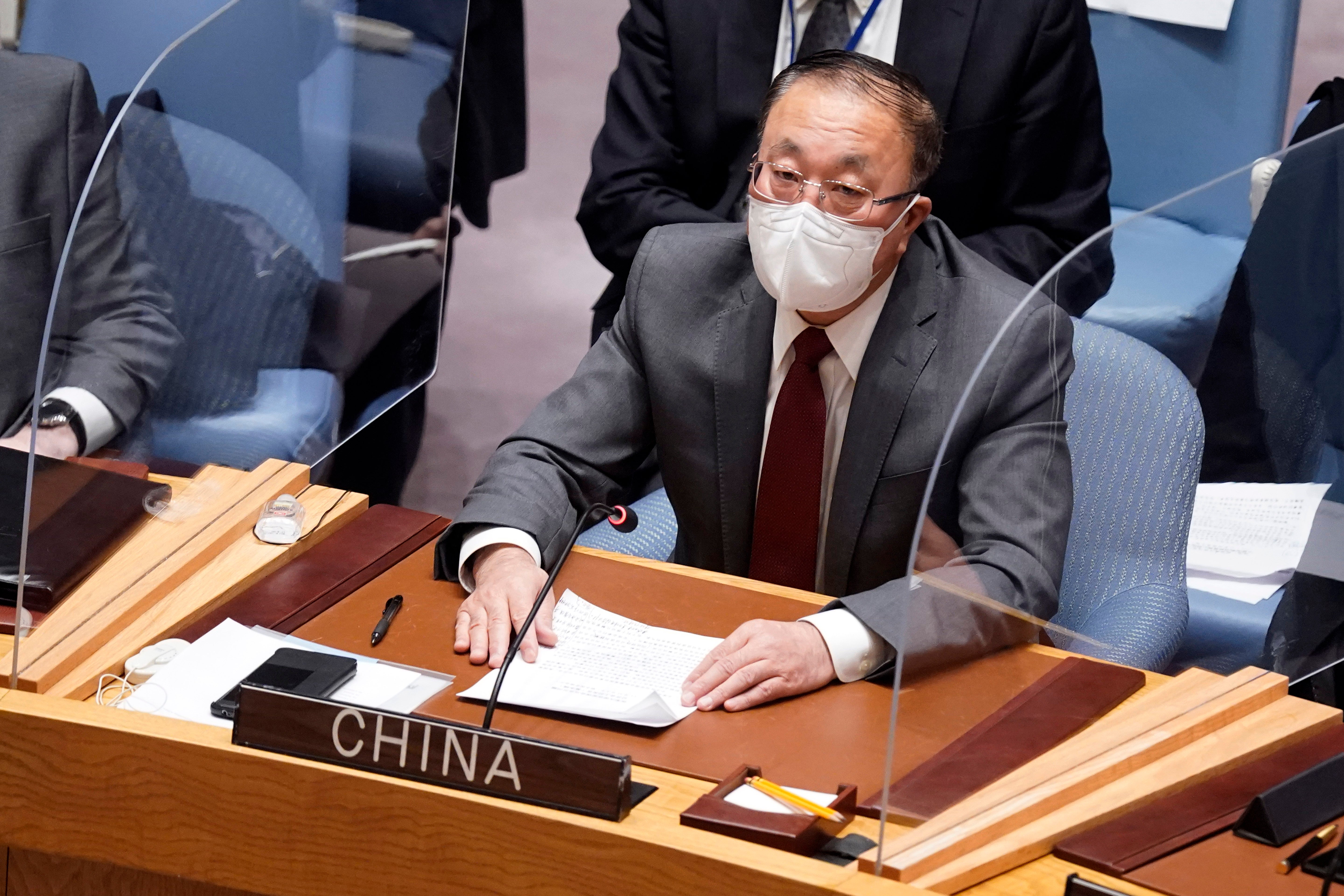China says US should do more to reduce North Korea tensions
China’s U.N. ambassador says the United States should come up with “more attractive and more practical” policies and actions to reduce tensions with North Korea and avoid a return to the “vicious circle” of confrontation, condemnation and sanctions over its nuclear and ballistic missile program

China’s U.N. ambassador said Friday the United States should come up with “more attractive and more practical” policies and actions to reduce tensions with North Korea and avoid a return to the “vicious circle” of confrontation, condemnation and sanctions over its nuclear and ballistic missile program.
Zhang Jun said the solution lies in direct dialogue, and if the Biden administration wants to see a breakthrough “they should show more sincerity and flexibility.”
He told reporters before heading into closed consultations of the U.N. Security Council called by the United States following North Korea’s most recent test of an intermediate-range ballistic missile capable of reaching the American territory of Guam that “what I see is the key in solving this issue is already in the hands of the United States.”
Asked what else the United States should do since it has already said it is prepared to talk with North Korea, the Chinese ambassador pointed to talks between former U.S. president Donald Trump and North Korea’s leader Kim Jong Un in Singapore and Hanoi.
“We have seen the suspension of the nuclear test, we have seen the suspension of the launch of intercontinental ballistic missiles” by the Democratic People's Republic of Korea, the country's official name, he said. “And then what has been done by the U.S.?”
Zhang said the Biden administration should be asked “in what way they can accommodate the concerns of DPRK ... to really bring tension down and then to put things under control.”
The Chinese ambassador called this “a critical moment” and said all concerned parties, including Security Council members, “should stay prudent in words and actions" and avoid further escalation of tensions.
“We have seen a vicious circle -- confrontation, condemnation, sanctions, and then coming back to condemnation, confrontation and sanctions again,” Zhang said. “So, what will be the end?”
He said that’s why China and Russia tabled a draft U.N. Security Council resolution in November that would lift some sanctions against North Korea.
“We do not think that draft resolution will solve all the problems,” Zhang said. “But then, at least we are doing something in facilitating the further improvement and avoiding the escalation of the tension.”
Asked whether the Security Council should respond to the nine missile launches by the DPRK in January -- the most ever -- the Chinese ambassador said council members are still consulting.
“The question is in what way we can keep the situation under control and avoiding the escalation, the further escalation, the out-of-control of the situation and avoiding going back to a vicious circle,” he said. “That’s the point.”
Zhang said the answer lies in the hands of the United States.
Bookmark popover
Removed from bookmarks